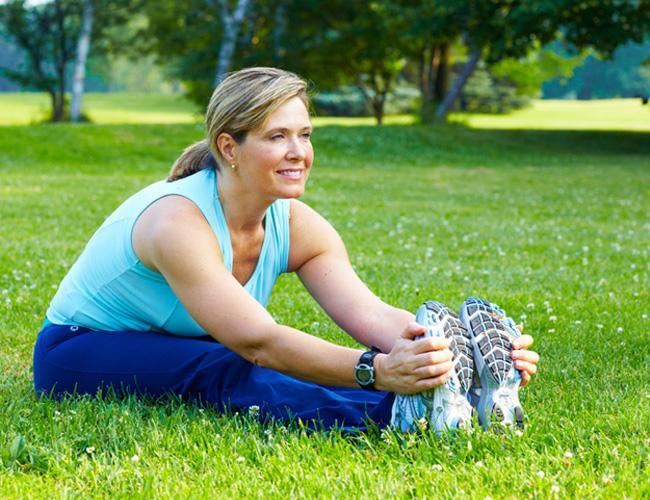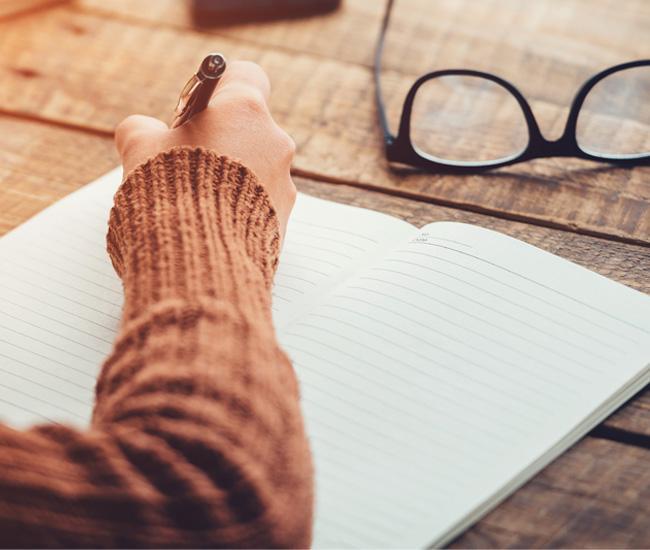The method
During each consultation, the health professional covers these three themes: “Diet”, “Head” and “Body” by tailoring his or her advice to the requirements specific to each individual with the aim being to promote long-term weight loss.
1. Re-balancing the diet is addressed by looking at how to change eating habits and by developing a programme tailored to the individual’s physiological requirements. This programme respects personal tastes and limitations and considers the most recent scientific data in the field of nutrition and micronutrition.
2. Managing emotions and maintaining motivation helps the individual to stick to the proposed nutritional changes over the long term. This work is concerned with removing any emotional obstacles which might prevent the success of the therapy (fears, loss of motivation, believing it is too complicated, etc.) and with suggesting techniques to calm everyday emotions without resorting to snacking.
To achieve this, motivational interviews are held which apply the principles of Cognitive Behavioural Therapy (or CBT). Cognitive behavioural therapies are care pathways which help people learn new behaviours, manage unhelpful thoughts and deal with their emotions.
There is large body of evidence for their efficacy in managing many minor and more severe psychological disorders such as depression, obsessive compulsive disorder (OCD), phobias and eating disorders.

3. Developing a positive body image makes it easier to transition to healthier lifestyle choices that might include physical activity or sports tailored to the individual's capabilities, interests and requirements.
This 3rd theme of the method is based, like the previous one, on motivational interviews and on CBT techniques (getting things into proportion, realistic thoughts, actions aimed at what makes sense)
Positive body image
In many cases, individuals have a difficult relationship with their own body, which they sometime reject or can't bear any longer. This can, however, provide motivation to commit to a weight loss programme.
Individuals who feel healthy have a body that makes them feel good about themselves.
This virtuous cycle can lead to rediscovering the pleasure of wearing nice clothes, enjoying a preferred physical activity and developing a positive self-image.
Positive body image, over and above any weight loss, is a big factor in developing well-being; the individual accepts the body he or she has, as well as any flaws that are considered to be just part of who they are. It is a key building block in developing self-confidence and self-esteem.

Getting active again
Office work, travelling everywhere by car… Our modern ways of life encourage us to walk less and to take the easy option where possible.
This physical inactivity repeated on a daily because becomes a sedentary lifestyle.
However, the human body is designed for moving about. Walking, gardening, doing jobs around the house… These small but everyday exertions are easily neglected due to lack of time or interest; this stops the body from expending energy. These core daily physical activities help the body to “burn up” its intake of calories rather than storing them.
The first step towards increased levels of physical activity is to move around a bit more every day. The next step is to set new challenges which are feasible and achievable, such as walking for a bit longer and/or at a faster pace. Alternatively, the individual can choose a sporting activity they enjoy (dancing, swimming, cycling, hiking, etc.) and get involved at the level which is right for them to ensure that they enjoy it and want to continue for the long term.

Supporting aids and techniques
Through working with health professionals with expertise in behavioural nutrition, PiLeJe has developed aids and techniques to support the nutritional and behavioural changes that the doctor may suggest.
Examples are the “Support booklets” or the “Your journey” diary which help people change any negative perceptions they may have of their body and tone down any negative emotions and thoughts.
These behavioural aids are handed over to the individual by the doctor at different stages as he or she progresses through the programme put in place.
The “Support booklets” target “Motivation”, “Positive body image” and “Coping with emotions”.
The style and content of these booklets is such that they are practical and easy to use on a daily basis.
For example, they help people become aware of any obstacles and negative thoughts which are stopping them from attaining their goals; they also support the identification of the root cause of the need to eat and suggest how to avoid slipping back into old habits, e.g. by putting in place replacements or rewards.
The “Your journey” diary applies the principles of “narrative therapy”.
It is a cross between a travel journal and a personal diary, and lets the individual record, in writing or drawings, any negative thoughts, frustrations, feelings of guilt, etc. The aim is to externalise the issues so as to separate the individual from the problems and find a sense of release.
Developed by psychologists, narrative therapy has proven to be effective in treating emotional trauma, eating disorders and even dependency issues.

Sources :
- Website (in French only) of the French Medical College for Behavioural Nutrition: https://sites.google.com/a/cmnc.fr/college-medical-de-nutrition-comportementale/home
- Website of the WHO: http://www.who.int/dietphysicalactivity/factsheet_adults/en/
- Website (in French only) of the AFTCCC (French association of cognitive behavioural therapy): http://www.aftcc.org/content/aftcc
- Website of the AFTN (French association of narrative therapy): http://assofrancaisetherapiesnarratives.org/
- Eve Villemur (2018) Maigrir grâce à mes 3 cerveaux. Published by Leduc.s
